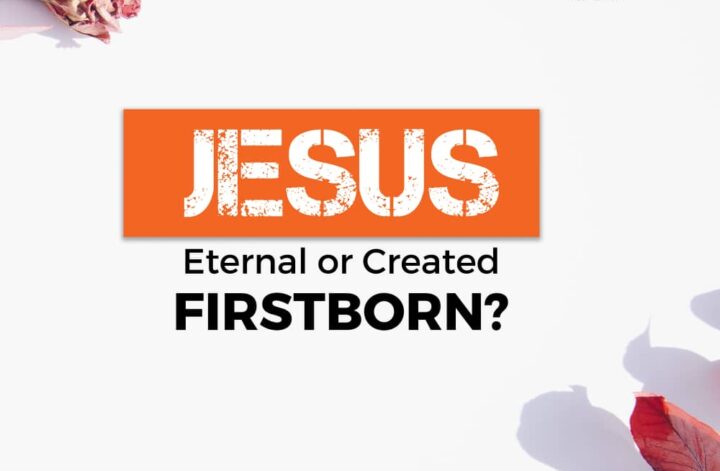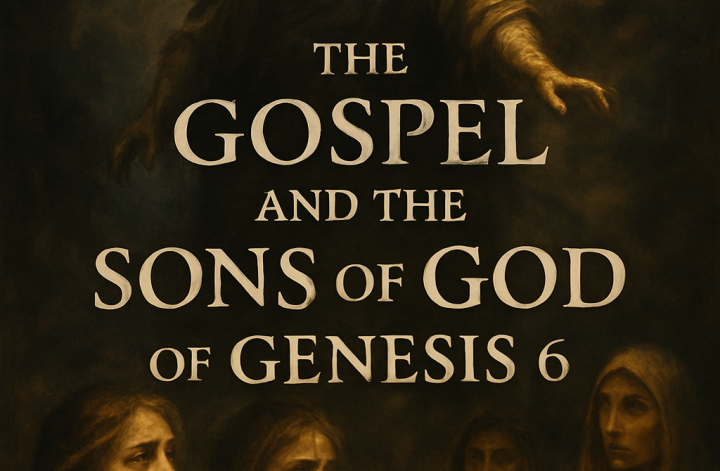Muslims and Jehovah’s Witnesses maintain similar positions on the subject at hand. Both of them push a one-person-in-the-Godhead theology. Jehovah’s Witnesses go as far as producing a version of the Bible representing their views. In fairness, this passage is often a head-scratcher for many a Christian who defends Jesus’ divinity as well. And, I should add, the problem is not new either, and it predates both Islam and Jehovah’s Witnesses as organizations. The issue formed the nucleus of the Arian Controversy that resulted in the convening of the First Council of Nicaea in 325 AD.
I want to focus on the first chapter of Colossians, where Paul describes Jesus as a firstborn. What did Paul mean?
There is no question whatsoever that Paul identifies Jesus as Yahweh. Before the Second Century AD, Judaism recognized two Yahweh figures. Jews, having carefully studied their scriptures, believed that there were two good, eternal, and divine persons in heaven. Paul identifies Jesus as the Second Yahweh figure. Of course, other New Testament writers also teach that Jesus is a Yahweh figure. Hence, we read that Jesus did things only appropriate for Yahweh, such as receiving worship and prayers, forgiving sins, claiming the holy name for himself, proclaiming himself as the Lord of the Sabbath, etc.
Given this portrayal of Jesus as God, readers are often confused to read some passages that seem to question Jesus’ divine status. One of the most problematic passages is found in Colossians 1:15-18,
The Son is the image of the invisible God, the firstborn over all creation. For in him all things were created: things in heaven and on earth, visible and invisible, whether thrones or powers or rulers or authorities; all things have been created through him and for him. He is before all things, and in him, all things hold together. And he is the head of the body, the church; he is the beginning and the firstborn from among the dead so that in everything he might have the supremacy.
This passage appears to have incompatible propositions, and I have been asked numerous times, “What’s up with ‘the firstborn over creation’ deal? If Jesus is the firstborn or first-created being, how in the world can he also be God? Is not one of the necessary attributes of God that he be, to use an Aristotelian lingo, uncaused? Surely, it is nonsense to say a created being is also uncreated.” I fully agree. The chief source of confusion is the term “firstborn.” If this word, as used here, implies chronology, then there is no escaping the contradiction. But what if the term has other meanings in the bible days? As it turns out, it does – and it is this other legitimate use of the term that Paul employed in the passage.
A quick topical search of the word in the entire bible would generate several instances of the intuitive, denotative use where a person is someone else’s firstborn child, usually a son. However, there are instances where strict chronology cannot possibly be the word’s intended meaning. Here are a few occurrences:
“Calamity is hungry for him; disaster is ready for him when he falls. It eats away parts of his skin; death’s firstborn devours his limbs.” Job 18:13.
Then, there are passages where we know that chronology is not intended. Consider Exodus 4:22,
“Then say to Pharaoh, ‘This is what the Lord says: Israel is my firstborn son.”
Surely, “firstborn” here cannot have a chronological meaning. Even if we set aside Adam, Jacob (Israel) is nowhere close to being the firstborn. There is Abraham, the guy who started the whole race. Besides, “Israel” in this passage does not even refer to an individual; it refers to a people group—the descendants of the man Israel. So, “firstborn” here seems to signify importance or value rather than chronology.
The prophet Jeremiah writes:
“They will come with weeping; they will pray as I bring them back. I will lead them beside streams of water on a level path where they will not stumble, because I am Israel’s father, and Ephraim is my firstborn son.” (Jeremiah 31:9.)
A literal reading would suggest that God’s firstborn son is now Ephraim but not Israel, even though the same passage affirms that Israel is also God’s son. We know that Israel is chronologically before Ephraim. Once again, we see that something other than chronology is intended here.
Then, there is Psalms 89:27. Referring to David (or a Davidic figure), it reads:
“And I will appoint him to be my firstborn, the most exalted of the kings of the earth.”
This passage is even more apparent than Exodus 4:22. First, chronological firstborn children are never “appointed;” they are born. God’s appointment of David as his firstborn indicates eminence: David would be “the most exalted of the kings of the earth.” Reading the entire chapter makes it hard to miss the messianic tone. This psalm may have informed Paul’s choice of words in the Colossians passage. Here is the passage again:
The Son is the image of the invisible God, the firstborn over all creation. For in him all things were created: things in heaven and on earth, visible and invisible, whether thrones or powers or rulers or authorities; all things have been created through him and for him. He is before all things, and in him, all things hold together. And he is the head of the body, the church; he is the beginning and the firstborn from among the dead so that in everything he might have the supremacy.
With the meaning of “firstborn” already taken care of, this passage affirms the eternality of Jesus. It says that “all things” – nature or the cosmos, as well as other spiritual (immaterial) beings—were created in him, through him, and for him. Jesus is before all things—that means ALL things; put another way, chronologically and logically, before Jesus, there was not a thing. Jesus is the beginning.
Interestingly, the second occurrence of “firstborn” sheds light on the non-chronological meaning. Jesus isn’t the first to die and come back to life. The Old Testament has examples of dead people coming back to life. Even Jesus reportedly raised some people from the dead. Unless “firstborn from among the dead” refers explicitly to resurrection – rising to an indestructible life – there is no chronological sense in which Jesus is the “firstborn” from among the dead. Paul seems to intend a non-chronological meaning when he writes that Jesus is the “firstborn… so that in everything he might have the SUPREMACY.” “Supremacy” suggests high-status importance owing to marked superiority; it’s not about chronology. And Jesus is an eternal Son, not a created firstborn son of God.





1 Comment